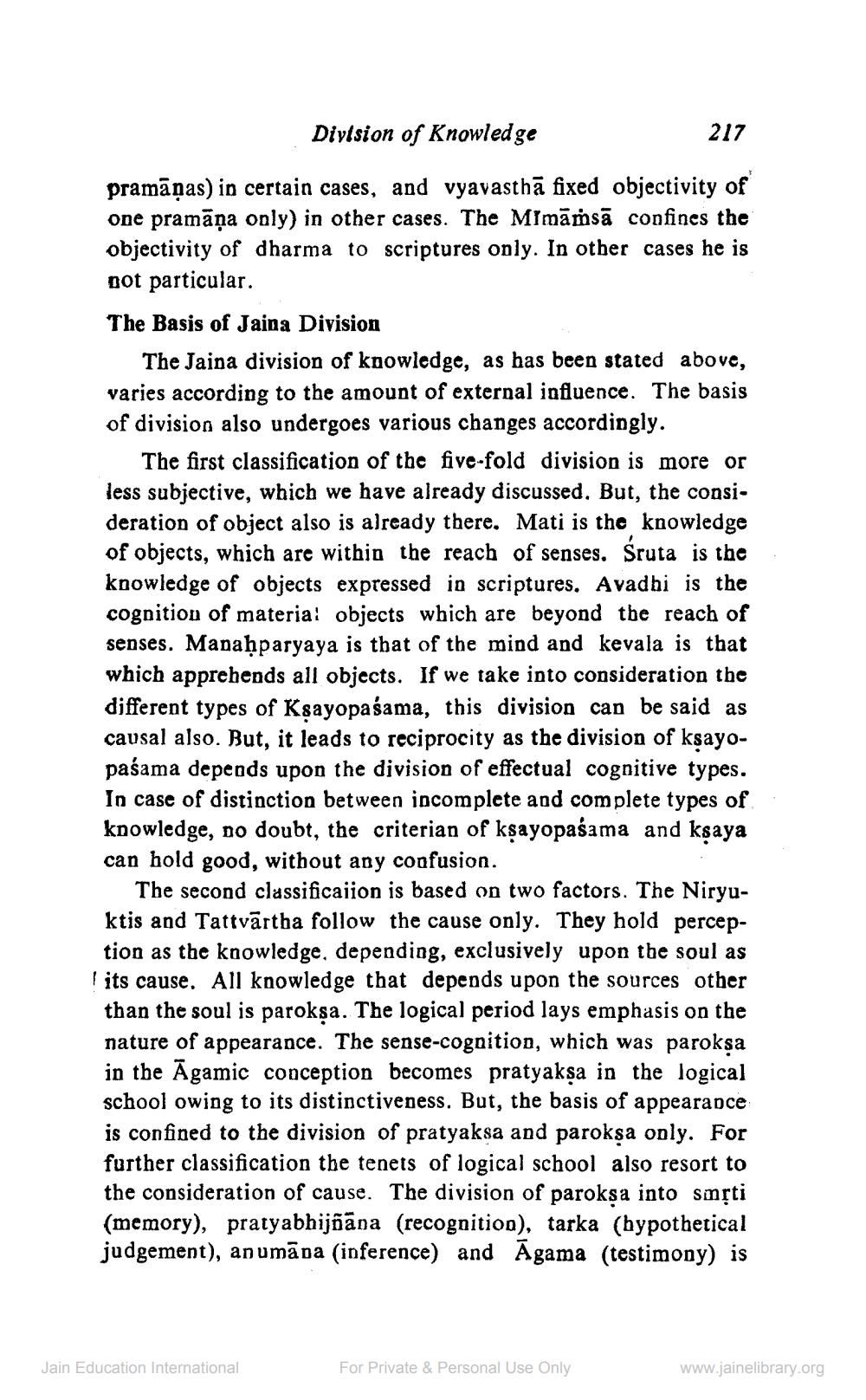________________
Division of Knowledge
217 pramāņas) in certain cases, and vyavasthā fixed objectivity of one pramāņa only) in other cases. The Mimāṁsā confines the objectivity of dharma to scriptures only. In other cases he is pot particular. The Basis of Jaina Division
The Jaina division of knowledge, as has been stated above, varies according to the amount of external influence. The basis of division also undergoes various changes accordingly.
The first classification of the five-fold division is more or less subjective, which we have already discussed. But, the consideration of object also is already there. Mati is the knowledge of objects, which are within the reach of senses. śruta is the knowledge of objects expressed in scriptures. Avadhi is the cognition of material objects which are beyond the reach of senses. Manaḥparyaya is that of the mind and kevala is that which apprehends all objects. If we take into consideration the different types of Ksayopaśama, this division can be said as causal also. But, it leads to reciprocity as the division of ksayopaśama depends upon the division of effectual cognitive types. In case of distinction between incomplete and complete types of knowledge, no doubt, the criterian of kşayopasama and kşaya can hold good, without any confusion.
The second classificacion is based on two factors. The Niryuktis and Tattvārtha follow the cause only. They hold percep
tion as the knowledge, depending, exclusively upon the soul as ! its cause. All knowledge that depends upon the sources other than the soul is parokşa. The logical period lays emphasis on the nature of appearance. The sense-cognition, which was paroksa in the Āgamic conception becomes pratyaksa in the logical school owing to its distinctiveness. But, the basis of appearance is confined to the division of pratyaksa and paroksa only. For further classification the tenets of logical school also resort to the consideration of cause. The division of paroksa into smrti (memory), pratyabhijñāna (recognition), tarka (hypothetical judgement), anumāpa (inference) and Agama (testimony) is
Jain Education International
For Private & Personal Use Only
www.jainelibrary.org




